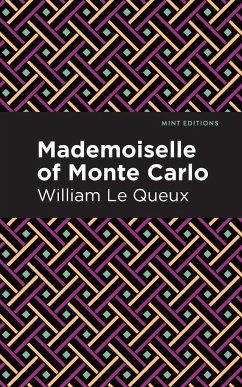
The Wiles of the Wicked
Versandkostenfrei!
Versandfertig in 1-2 Wochen
11,99 €
inkl. MwSt.
Weitere Ausgaben:

PAYBACK Punkte
6 °P sammeln!
The Wiles of the Wicked (1900) is a mystery novel by Anglo-French writer William Le Queux. Published at the beginning of Le Queux's career as a leading author of popular thrillers, The Wiles of the Wicked is a story of mystery, murder, and redemption. Using his own research and experience as a journalist and adventurer, Le Queux crafts an accessible, entertaining tale for readers in search of a literary escape. Known for his works of fiction and nonfiction on the possibility of Germany invading Britain-a paranoia common in the early twentieth century-William Le Queux also wrote dozens of thril...
The Wiles of the Wicked (1900) is a mystery novel by Anglo-French writer William Le Queux. Published at the beginning of Le Queux's career as a leading author of popular thrillers, The Wiles of the Wicked is a story of mystery, murder, and redemption. Using his own research and experience as a journalist and adventurer, Le Queux crafts an accessible, entertaining tale for readers in search of a literary escape. Known for his works of fiction and nonfiction on the possibility of Germany invading Britain-a paranoia common in the early twentieth century-William Le Queux also wrote dozens of thrillers and adventure novels for a dedicated public audience. Although critical acclaim eluded him, popular success made him one of England's bestselling writers. In The Wiles of the Wicked, a young man goes abroad to discover himself, but returns home totally blind. Following the death of his father, Wilford Heaton embarks on a tour of Europe, avoiding responsibility at the cost of his intellectual promise. In Italy, a sudden onset of scleritis robs him of the power of sight, forcing him to return home to London. Having spent his fortune without thought for his future, Heaton moves into a dismal flat to be close to his friend Dick Doyle, a promising writer and caring companion who helps Heaton navigate daily life with a terrible disability. When Doyle leaves for several weeks on business, Heaton-overcome with despair-takes a risk by venturing into the streets of London alone. Struck by a carriage, he lies unconscious for hours before waking in a strange apartment in the company of several strangers. Conversing with these Good Samaritans, Heaton feels his sense of humanity slowly return to him. As a piano plays Chopin's "Andante Spianato," a woman suddenly cries out, and a fight leaves her and another man murdered. Having witnessed this terrible crime without the ability to see it, Heaton steels himself not only to solve the mystery, but to regain his hold on life. This edition of William Le Queux's The Wiles of the Wicked is a classic mystery novel reimagined for modern readers. Since our inception in 2020, Mint Editions has kept sustainability and innovation at the forefront of our mission. Each and every Mint Edition title gets a fresh, professionally typeset manuscript and a dazzling new cover, all while maintaining the integrity of the original book. With thousands of titles in our collection, we aim to spotlight diverse public domain works to help them find modern audiences. Mint Editions celebrates a breadth of literary works, curated from both canonical and overlooked classics from writers around the globe.













